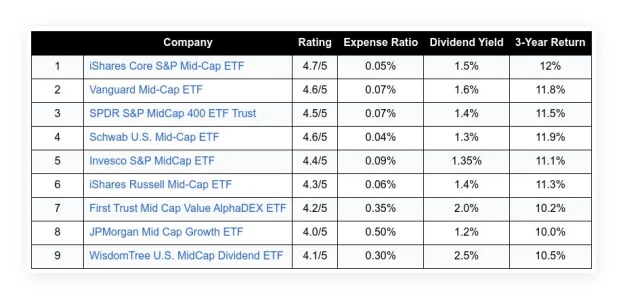Traditionally, retirement was portrayed as a well-earned break from work: a time to travel, indulge in hobbies, and enjoy life. But what if you don’t want to stop working? Even after decades of building a career, do you still find fulfillment, meaning, and joy in your work? Or, do you want to start something new?
Redefining retirement, as traditionally defined, is long overdue. Today, more and more people are working past retirement age, not for financial reasons, but because they want to. If that describes you, you’re not alone. Depending on your values, goals, and lifestyle, retirement can evolve.
In this post, we’ll discuss how to reframe retirement so you can keep on working.
Table of Contents
ToggleThe Traditional Retirement Model Is Outdated
In the mid-20th century, pensions were common, and life expectancy was lower, leading to the modern concept of retirement. As such, in a time when most people didn’t live much past 70, retiring at 65 made sense. The purpose was to rest after decades of labor-intensive work.
Today, people live into their 80s and 90s, and many jobs are not physically demanding. The life expectancy of a 65-year-old in 2025 might be 20 or 30 years. According to the Social Security Administration, the average 65-year-old man will live to 82, and the average 65-year-old woman will live to 84.5. However, at least half of us will live even longer.
As such, for someone who has found purpose and identity in work, that’s a long time away from meaningful activity.
Moreover, Gallup reports that a growing proportion of older adults choose to delay retirement or phase it in gradually. Nowadays, retirement is more than just stopping work. It’s all about shifting priorities and designing a life on your terms.
The Compelling Reasons Behind the Choice to Keep Working
Some people aren’t drawn to endless rounds of golf or years of continuous international travel. It is common for individuals to derive profound satisfaction from problem-solving, the enjoyment of creating, mentoring others, or building something meaningful that goes beyond their own contributions. Working provides a multitude of benefits to these individuals, such as;
- A deep sense of purpose and meaningful contribution. As a result of work, one can feel useful, contribute to something bigger than oneself, and make a tangible difference in the world.
- Stimulating intellectual engagement and continuous growth. In addition to providing intellectual stimulation, challenging work can foster ongoing learning and personal development.
- Work provides valuable daily structure and a predictable routine, benefiting people’s mental and emotional health.
- Essential opportunities for social interaction and connection. It is common for the workplace to serve as a hub for social interaction, encouraging friendships and creating a sense of belonging.
- A strong sense of identity and a lasting personal legacy. Many feel their professional accomplishments and contributions are deeply intertwined with their identity and legacy.
As renowned psychologist Viktor Frankl noted, “What man actually needs is not a tensionless state but rather the striving and struggling for some goal worthy of him.” In the eyes of many individuals, their work embodies that worthy goal, providing them with a sense of purpose and motivation beyond mere monetary gain.
Redefining “Retirement:” Crafting a Meaningful Next Chapter
Traditionally, retirement has been viewed as an abrupt end to full-time employment, followed by a complete cessation of work. In reality, you define retirement according to your preferences and aspirations to meet your individual needs.
With that said, here are some alternative models to consider;
- Embracing part-time or freelance work. You can maintain engagement while gaining greater flexibility as a freelancer or with a reduced work schedule.
- Launching a passion project or a side business. In retirement, you may finally be able to explore your long-held passion or start a venture on your terms.
- Transitioning to consulting or mentoring roles. Your expertise and experience are invaluable. You can achieve professional and personal fulfillment by sharing them through consulting or mentoring.
- Actively volunteering for a cause you deeply care about. By volunteering for a meaningful cause, you will have a sense of purpose and become more involved in your community.
- Making a bold shift to an entirely new industry. During retirement, you can pursue a long-held dream or explore a completely different field that interests you.
Rather than adhering to social expectations or conventional definitions of what retirement “should” look like, design a lifestyle that energizes you, aligns with your core values, and prioritizes your well-being.
As you begin the process of redefinition, ask yourself these questions;
- What aspects of my work give me the most energy, satisfaction, and meaning?
- Do I want greater freedom, increased flexibility, increased creative expression, and a stronger sense of community in this next phase of my life?
- On the other hand, what aspects of my current work or lifestyle do I wish to minimize—chronic stress, a long commute, bureaucratic hurdles, the constant pressure of my current position?
- Do I have a realistic financial picture? Is I need a specific amount of income to maintain a comfortable and fulfilling lifestyle?
The answers to these introspective questions can serve as the blueprint for crafting your own unique and meaningful next chapter.
Practical Pathways to Continued Engagement Beyond Traditional Retirement Age
If you’re interested in continuing to work, you’ll be glad to know you have more options than ever to stay engaged and productive. As such, take a look at these practical options:
- Phased retirement arrangements. Several forward-looking companies now offer phased retirement programs that allow long-term employees to reduce their working hours and responsibilities gradually. Consider suggesting one proactively if your current employer doesn’t have such a program.
- Embracing the freelance or consulting world. Your extensive experience, skills, and industry knowledge are highly valuable in the freelance and consulting world. With an independent consulting, coaching, or contracting business, you can select your own projects, set your schedule, and maintain professional sharpness without being tied to a full-time job.
- Venturing into entrepreneurship later in life. There have been many successful businesses started by people over 50. As a result of this demographic’s experience, invaluable perspective, and established professional networks, they are a valuable asset for startups.
- Cultivating a portfolio career. You shouldn’t limit yourself to one career path when you can live a more diverse and flexible lifestyle. As part of a portfolio career, one engages in part-time work in various fields, participates in creative endeavors, manages investments, volunteers, and pursues other meaningful activities.
- Sharing your wisdom through teaching and mentoring. Share your insights and knowledge by lecturing at universities, mentoring emerging professionals, or serving as a consultant to startups. As a result, you stay connected to your field while helping others grow.
Designing Work That Harmonizes with Your Desired Lifestyle
If you want to continue working with genuine joy and fulfillment for the rest of your life, you need to make intentional changes in how you do business. Here are some key adjustments to consider;
- Establishing clear and firm boundaries. You can protect your precious time and energy by consciously choosing work opportunities that align with your ideal pace and lifestyle. If a project or commitment feels overly demanding or misaligned with your goals, don’t hesitate to say “no”.
- Prioritizing purpose over pure pressure. In this stage of your life, your work shouldn’t be a hindrance to your overall well-being. Identify projects and roles that are aligned with your values and provide you with a sense of purpose.
- Leveraging automation and strategic delegation. Utilize technology and outsourcing to simplify routine tasks and free up your time for higher-value tasks. Don’t waste your time and energy on work that does not leverage your unique skills and expertise.
- Thoughtful financial planning and reassessment. Your financial needs and priorities may have changed significantly. By educating yourself on your current financial situation, you can consciously choose to continue working rather than one born out of financial necessity.
The Tangible Mental and Physical Benefits of Remaining Engaged in Work
Working beyond retirement age isn’t just about making money or filling time. When individuals engage in meaningful work, positive psychological outcomes may occur, including positive affect, well-being, and life satisfaction.
- A lowered risk of age-related cognitive decline. By remaining mentally and physically active through work, people can maintain cognitive function and may be able to reduce their risk of dementia and Alzheimer’s disease.
- Reduced incidence of depression and social isolation. As a result of work’s social connections and sense of purpose, loneliness and depression can be effectively buffered.
- Enhanced overall life satisfaction and a stronger sense of purpose. In addition to improving overall life satisfaction, contributing to something meaningful can provide a sense of meaning and purpose in life.
- Potentially increased longevity. According to studies, engaging in meaningful activities may contribute to a longer lifespan.
However, it’s important to emphasize that autonomy is key to these benefits. Most positive outcomes occur when people choose to work, driven by intrinsic motivation rather than financial necessity or trapped in unfulfilling jobs.
Addressing the Spectre of Burnout
Continued work should never equate to ignoring the possibility of burnout. Even with traditional retirement, you might find that reinvention is still possible. No matter how committed you are to quitting your current job, it is consistently draining you, you are located in a toxic environment, or it fundamentally clashes with your values.
Consider reimagining your current role, taking a completely different career path, or even taking a dedicated break to assess your priorities and recharge your batteries. It’s important to distinguish between engaging in productive, fulfilling work and enduring punishing, soul-draining work.
The Empowering Potential of Reinvention After 60 (Or Any Age)
When you crave significant change in your professional life, but feel unappealing about quitting altogether, this can be an excellent time for self-reinvention. You might want to explore the following options;
- Launching a long-cherished creative endeavor. The time has come to start that writing project, pursue an artistic endeavor, or pursue that musical goal.
- Acquiring a brand new skill or returning to formal education. You could gain expertise in a different field or pursue a lifelong learning goal.
- Sharing your voice through writing, public speaking, or teaching. You can inspire and educate others by sharing your knowledge and experience.
- Actively joining a non-profit board or engaging in meaningful advocacy. You can contribute meaningfully to a cause you deeply believe in by sharing your experience and passion.
- Taking a strategic sabbatical to reflect and re-energize. You can gain a fresh perspective by taking a break from your current work and returning to it with renewed energy and focus.
Reinvention isn’t just for the young. You might be best positioned to create something significant and aligned with your authentic self in your sixties or seventies. The reason? The wisdom you have accrued over the years, your broader perspective, and your insight into your own strengths and passions are invaluable.
Final Thoughts: You’re Allowed to Redefine Retirement
Whether you love your work or are simply not ready to stop, no rule says you have to. There is no obligation to retire. With more freedom and intention, you can reshape your life.
You might want to slow down, start something new, or continue doing what you always have—but with fewer meetings and more travel between meetings. It’s your choice.
In the end, don’t retire from your job. Instead, you should retire to a life that excites you.
FAQs
Is it normal not to want to stop working at retirement age?
Absolutely. In recent years, it has become increasingly common for individuals to want to work beyond retirement. This is due to several factors;
- Financial needs. It is common for people to feel that they haven’t saved enough for a comfortable retirement or that they wish to maintain a particular lifestyle that requires a steady income.
- Sense of purpose and identity. Often, work provides a sense of identity, purpose, and contribution. For some, losing this can be a challenge.
- Social connection. Many people find their workplace a source of social interaction and community.
- Intellectual stimulation. Keeping the mind active, engaged, and challenged through work is possible.
- Health benefits. Keeping active and engaged at work benefits physical and mental health. In addition, some people may need to continue working to maintain their health insurance coverage.
- Enjoyment of work. Retirement may not appeal to some people since they genuinely love their work.
What are my options if I don’t want to fully retire?
In addition to remaining employed, there are several alternative options, such as;
- Bridge jobs. These jobs are less demanding or less stressful to ease the transition into retirement. A part-time position, a temporary position, or a different career path can be considered.
- Part-time work. You can balance work and leisure by reducing your work hours or finding a part-time position.
- Consulting or freelancing. Your expertise can be leveraged on a project basis to provide flexibility and control over your workload.
- Encore careers. In many cases, this involves a career change later in life, often one that is more meaningful to the individual or has more social impact on society.
- Starting your own business. You can pursue your entrepreneurial dream during retirement.
- Teaching or mentoring. In addition to providing income, sharing your knowledge and experience can be fulfilling.
- Volunteering. While volunteering isn’t paid work, it can provide a sense of purpose, community, and an opportunity to utilize your skills. Occasionally, it can lead to a paid position.
- Phased retirement. Employees can gradually reduce their hours and responsibilities up to full retirement through some employer programs.
How can I approach my employer to work past the traditional retirement age?
Communicating openly with your employer is essential:
- Start the conversation early. If you want to continue working after retirement, don’t wait until then.
- Be clear about your desires. Describe the type of arrangement you seek (e.g., reduced hours, different responsibilities, consulting role).
- Highlight your value. Put a strong emphasis on your experience, skills, and institutional knowledge.
- Be flexible and open to negotiations. Your employer may impose special requirements or limitations. You should be prepared to discuss different options and negotiate a mutually beneficial arrangement.
- Propose a plan. Put together a well-thought-out plan of how you can contribute in a different capacity.
- Understand company policies. Become familiar with your company’s retirement and continuation policies.
What are the financial implications of continuing to work in retirement?
Working longer can have significant financial benefits:
- Delaying Social Security benefits. As you delay claiming Social Security benefits past full retirement age (up to age 70), your benefit amount will increase.
- Continuing to save. The more you contribute to retirement accounts, the more your savings grow.
- Leaving retirement savings untouched longer. By doing this, you can compound the value of your existing nest egg over time.
- Reducing the need for withdrawals. You may not have to draw down your retirement savings as early if you continue to earn income.
- Potential for new income streams. You can earn additional income by working part-time, consulting, or starting a business.
How might working longer affect my health and well-being?
In terms of health and well-being, it can have a positive impact:
- Cognitive benefits. By remaining mentally active at work, you can maintain cognitive function and possibly reduce the risk of dementia.
- Physical benefits. Certain types of work can involve physical activity, which can benefit overall health.
- Social engagement. Loneliness and isolation can be reduced by providing opportunities for social interaction at work.
- Sense of purpose. Having a sense of purpose and contributing can boost self-esteem and overall well-being.
Overworking, however, can lead to stress and burnout, so find a balance. As such, it is important to choose work you enjoy and can manage.
Image Credit: SHVETS production; Pexels

















